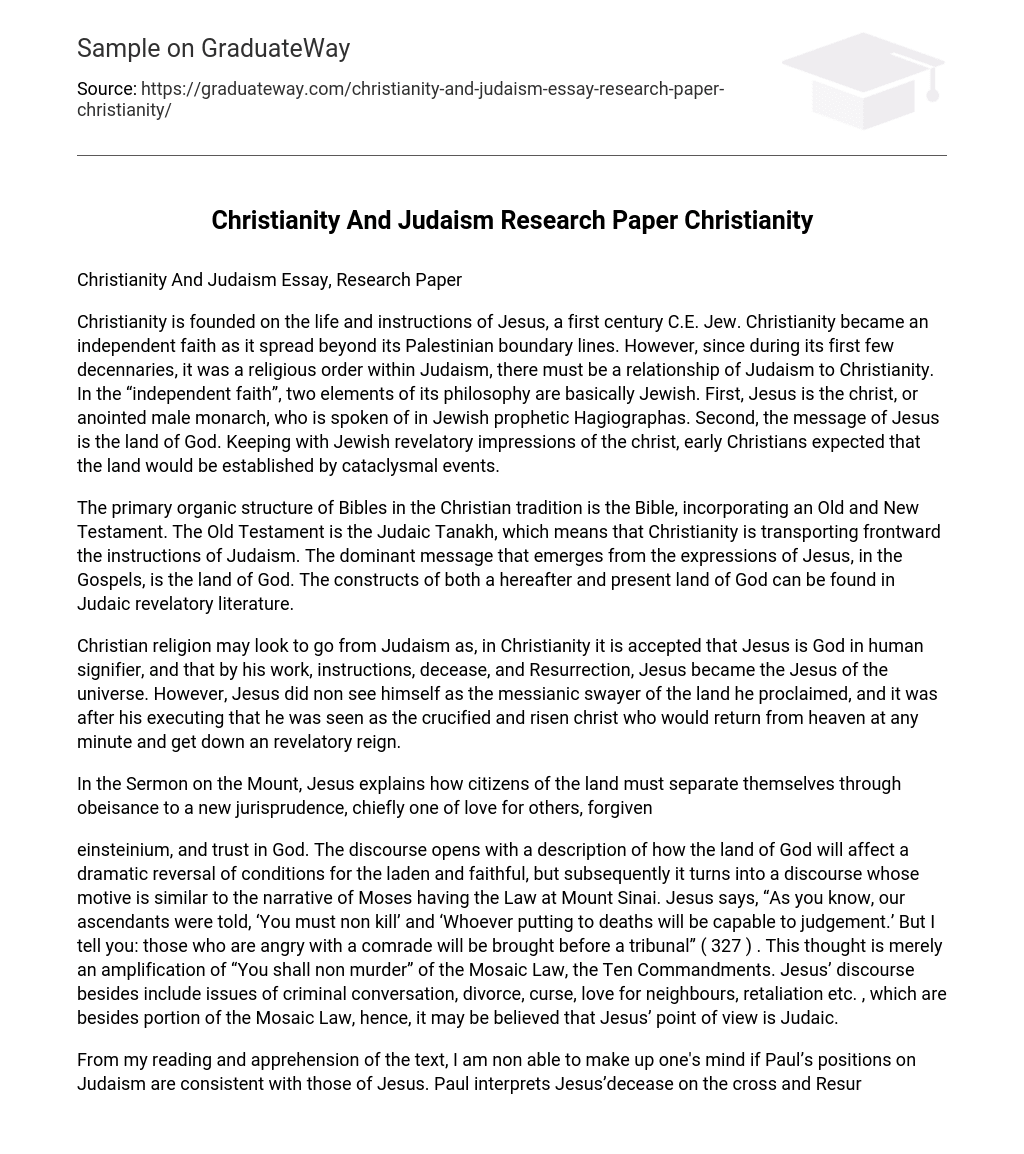Christianity is founded on the life and instructions of Jesus, a first century C.E. Jew. Christianity became an independent faith as it spread beyond its Palestinian boundary lines. However, since during its first few decennaries, it was a religious order within Judaism, there must be a relationship of Judaism to Christianity. In the “independent faith”, two elements of its philosophy are basically Jewish. First, Jesus is the christ, or anointed male monarch, who is spoken of in Jewish prophetic Hagiographas. Second, the message of Jesus is the land of God. Keeping with Jewish revelatory impressions of the christ, early Christians expected that the land would be established by cataclysmal events.
The primary organic structure of Bibles in the Christian tradition is the Bible, incorporating an Old and New Testament. The Old Testament is the Judaic Tanakh, which means that Christianity is transporting frontward the instructions of Judaism. The dominant message that emerges from the expressions of Jesus, in the Gospels, is the land of God. The constructs of both a hereafter and present land of God can be found in Judaic revelatory literature.
Christian religion may look to go from Judaism as, in Christianity it is accepted that Jesus is God in human signifier, and that by his work, instructions, decease, and Resurrection, Jesus became the Jesus of the universe. However, Jesus did non see himself as the messianic swayer of the land he proclaimed, and it was after his executing that he was seen as the crucified and risen christ who would return from heaven at any minute and get down an revelatory reign.
In the Sermon on the Mount, Jesus explains how citizens of the land must separate themselves through obeisance to a new jurisprudence, chiefly one of love for others, forgiven
einsteinium, and trust in God. The discourse opens with a description of how the land of God will affect a dramatic reversal of conditions for the laden and faithful, but subsequently it turns into a discourse whose motive is similar to the narrative of Moses having the Law at Mount Sinai. Jesus says, “As you know, our ascendants were told, ‘You must non kill’ and ‘Whoever putting to deaths will be capable to judgement.’ But I tell you: those who are angry with a comrade will be brought before a tribunal” ( 327 ) . This thought is merely an amplification of “You shall non murder” of the Mosaic Law, the Ten Commandments. Jesus’ discourse besides include issues of criminal conversation, divorce, curse, love for neighbours, retaliation etc. , which are besides portion of the Mosaic Law, hence, it may be believed that Jesus’ point of view is Judaic.
From my reading and apprehension of the text, I am non able to make up one’s mind if Paul’s positions on Judaism are consistent with those of Jesus. Paul interprets Jesus’decease on the cross and Resurrection as the terminal of the old Judaic jurisprudence and the beginning of a new epoch of godly grace. He besides argues vehemently that obeisance to Jewish jurisprudence will non shrive one’s wickednesss, and that righteousness could come about merely through religion in Christ. These thoughts lead to the impression that Christianity and Judaism are two wholly different faiths. However, in the fable of extravagant boy told by Jesus, the duteous older brother represented Jews and the younger boy represented non-Jews. This implies a wholly different thought than Paul’s. By typifying Hebrews by the duteous brother, Jesus is connoting that what he has been learning is non different from Judaism, and those who are Hebrews are the one on his side. Therefore, Christianity is non an independent faith. Therefore, it may be concluded that Paul and Jesus have different positions of Judaism.





